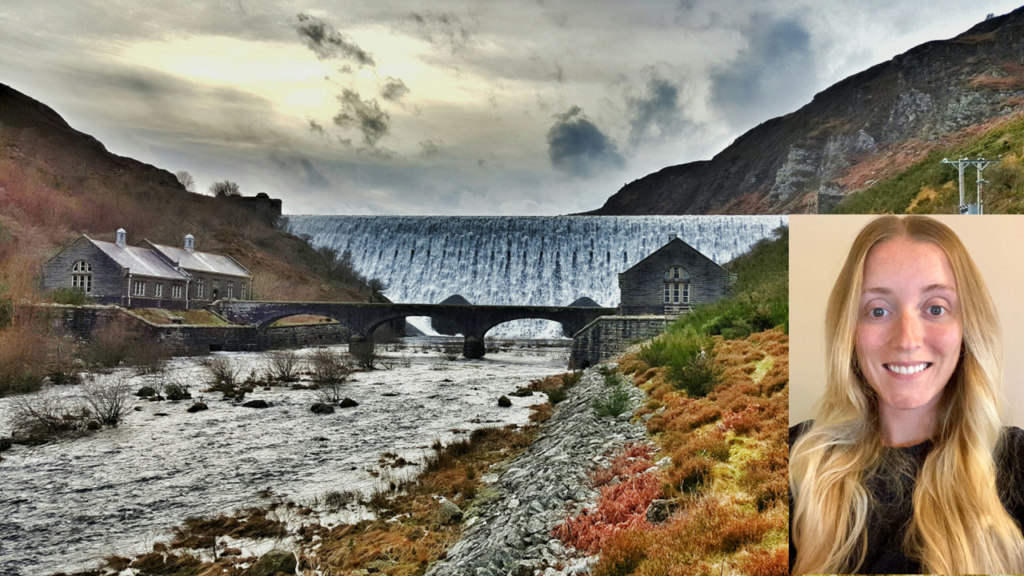Dŵr Cymru Welsh Water (DCWW) is a partner organization having previously sponsored an EJWP1 participant. While providing over 3 million people in Wales with high-quality drinking water, DCWW also removes, treats and disposes of wastewater produced.
In memory of a colleague, Amanda Soady, DCWW has created a scholarship for a young female employee to further develop her skills and networks as a leader. EJWP is happy to welcome Victoria Collier, DCWW Catchment Manager for the Wastewater Treatment Team, to join our next EJWP group starting this fall with a Training Week in Croatia hosted by the University of Zagreb.
Annette Mason, Head of Talent Development and Inclusivity at DCWW, shared insights on the origins and aims of the scholarship with EJWP.
Can you describe the purpose behind the creation of the scholarship?
Firstly, it is seen as a great learning opportunity for one of our many talented colleagues in DCWW. The development through the scholarship provides young professionals with a wider understanding of the water industry and knowledge and skills to use in their roles. It also provides opportunities to network and engage with others and create links across countries.
Who is the current recipient?
Victoria Collier was appointed as the Catchment Manager for the Wastewater Treatment team covering North West Wales in October 2021. This role involves safely leading a multidisciplinary team of 67 people while ensuring the performance and compliance of the catchment assets. Prior to this Victoria was the supervisor for the CCTV team in wastewater networks for three years where she was responsible for leading a team of 11 people. Before starting her role as CCTV supervisor Victoria completed the DCWW graduate scheme which provided the opportunity to grow and develop as a leader and enhance her knowledge of the wastewater sector.
Before joining DCWW, Victoria was a research scientist leading marine climate change research in Norway, Thailand, and Dominica. She has an MSc in Marine Biology from Bangor University, North Wales.
What the basis of the scholarship?
This scholarship is an opportunity for Victoria to develop her skills as a leader while developing a network throughout Europe with water professionals for further collaborative learning and development. We believe this shared learning will be invaluable for DCWW as a company. This is very personal to DCWW and an opening for good learning opportunities for others in DCWW. From a community perspective, shared learning is always important as it drives innovation and development.
The scholarship was created in recognition our colleague Amanda Soady. Amanda was one of our earliest and most prominent female leaders in the business. She was well known and respected throughout Welsh Water and the wider water industry, latterly in her role as Director of Operational Services. Sadly, Amanda passed away earlier this year. Amanda always led with pride, energy, determination and enthusiasm. You always knew Amanda “was in the building” being a key leader in responses from droughts to winter storms. Amanda was part of our central command team that led the business through the pandemic and was instrumental in setting up procedures that ensured we continued to deliver for our customers and kept our people safe.
Her loss has had a profound impact on the business, so we’re celebrating her career achievements and recognizing her legacy with a scholarship in her name. It was decided that the recipient should have worked in the business for more than a year, and be female.
Can you describe Welsh Water in this context?
Welsh Water is different from other water or energy companies. We don’t have shareholders. This means that we’re able to keep bills down, and put every single penny we make straight back into looking after the water and beautiful environment. We supply 3 million people, 1.4m homes and businesses. We have 3,500 staff, 26,500km of water mains and 30,000km of sewers.
Our scientists carry out hundreds of thousands of tests on our water every year, while our engineers gather water and send it through thousands of miles of pipes to reach our customers’ taps. We use part of the waste we treat to generate power, which we then use to run some of our sites. We are also responsible for the treatment and recycling of around 55,000 tons per year of biosolids (sludge) supporting the reduction in chemical fertiliser use in Wales and managing this important resource.
DCWW also works with schools to encourage children to love and value water. Our activities, led by seconded teachers, equip pupils to become global citizens with an understanding of sustainability and its impact on the local community.

